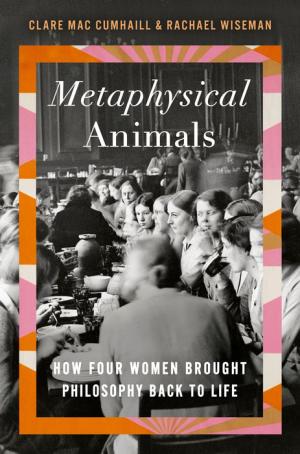This narrative non-fiction book is surprising relevant to contemporary followers of earth spirituality and pagan pathways. It presents combined life stories of four 20th century female philosophers from the point at which they’re accepted as students at Oxford University in the late 1930s. These women attended college during the period of much-reduced male student attendance during World War 2, graduated with Firsts in Philosophy, and went on to write important works on the subject.
The subjects of this scholarly study are Elizabeth Anscombe, Mary Midgley, Philippa Foot and Iris Murdoch. Avid readers might be familiar with Iris Murdoch, who is best known as a prolific novelist. But have readers ever even heard of the other women? Or of any other female philosophers? It may seem like an unlikely calling for women, but it’s not. It’s simply that women who have pursued philosophy are markedly unacknowledged.
The authors organize the biographical material into chapters that cover chronological time segments featuring the adventures and activities of the four women. The text is somewhat dense and includes a certain amount of British-isms and British location names but that shouldn’t be considered a hindrance.
MacCumhaill and Wiseman have deftly woven the threads of influential philosophical ideas throughout the development of personal philosophical viewpoints. Few realize how critically endangered Western philosophy was in the years before WW2. Eastern European philosophers fled the continent to England and merged with a small group of young British philosophy students (A. J. “Freddie” Ayers in particular) in espousing “logical positivism.” This bland-sounding theory was a dangerous because it nullified the value of moral, ethical and esoteric questions philosophers had wrestled with for over 2,400 years. It was especially alarming as the Nazis rose to power and launched their assaults on Poland, Austria, and various ethnic groups prior to 1940. Issues of right, wrong, morality and ethics are core philosophical topics when a world war distinguished by vast and brutal atrocities is taking place.
By the time the war ended, Philippa, Elizabeth and Mary were pursuing advanced academic degrees with Donald MacKinnon. He was seeking errors within logical positivism in order to restore the foundations of philosophy. This quote is the source of the book’s title: “Philosophy [he continues] is an expression and an index of human dignity. A human being is an animal, and its nature – its essence – is expressed in its curiosity and imagination. Human animals speak and ask questions about goodness and beauty, meaning and truth…Deprive human animals of the capacity and opportunity to ask metaphysical questions, as totalitarianism does [urges MacKinnon], and what is left? Cynicism, skepticism, fear. Mere beastliness…Humans are metaphysical animals.” (page 91)
The book offers a unique blend of biography with a lens focused on mid-20th century philosophy, and the role of four women within the swift-changing philosophical themes at that time. The narration ends in the mid-1950s. The text includes numerous black and white photos. End matter includes copious end notes, a bibliography, further reading suggestions, a list of illustrations, acknowledgements and an index.
Religion, spirituality, philosophy and politics are deal with many of the same topics in different ways. It’s valuable for people involved in earth spirituality to grasp the wild ride of mid-20th century philosophy as this period dovetails with the origins and development of modern Wicca and paganism. This text may be quite useful to scholarly pagans exploring the history of 20th century spirituality.
~review by Elizabeth Hazel
Authors: Clare MacCumhaill and Rachael Wiseman
2022, Doubleday/ Penguin Random House
398 pages, $32.50
Metaphysical Animals: How Four Women Brought Philosophy Back to Life

©
2010 - 2025
Facing North
